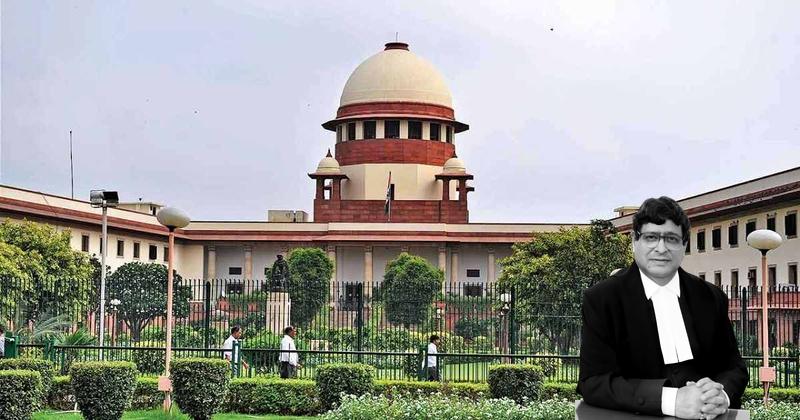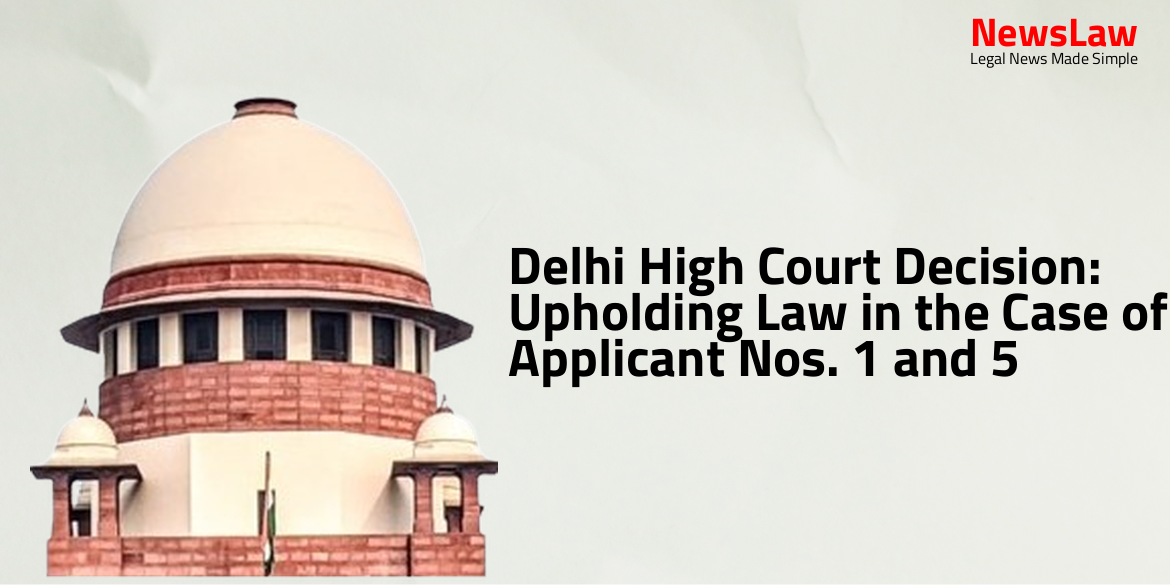The Supreme Court of India recently reviewed the case of Life Insurance Corporation of India vs. Narender Kumar Kantilal Modi. The dispute arose regarding the acceptance of a life insurance policy proposal submitted by the deceased, Narender Kumar Kantilal Modi. The lower courts originally directed the respondent, Life Insurance Corporation of India, to pay benefits as per the policy, but the decision was reversed by the National Consumer Disputes Redressal Commission. Learn more about the details and implications of this judgment in our blog post.
Facts
- The appellants approached the District Forum as per the Consumer Protection Act, 1986.
- District Forum directed the respondent to pay outstanding amount, interest, compensation, and costs to the appellants.
- Respondent filed an appeal before the State Commission which got dismissed.
- Issue of policy No. 832471906 being blocked in the name of the deceased is not disputed.
- Fact of proposal submission and premium payment towards the policy are acknowledged.
- National Consumer Disputes Redressal Commission (NCDRC) allowed a revision petition filed by the Life Insurance Corporation of India, leading to dismissal of the appellants’ complaint for compensation.
- The deceased, Shri Narender Kumar Kantilal Modi, submitted a proposal form for Life Insurance Policy before his accidental death.
- Appellants claimed benefits based on Insurance Policy Diary No. 832471906 after his death.
- Legal notice was sent due to the respondent’s failure to provide benefits for 14 months post the policy holder’s death.
- Respondent’s stand for repudiating the claim was the non-acceptance of the proposal, indicating no concluded contract between the deceased and the respondent.
- The lower forums were found to be incorrect in ordering the payment of benefits outlined in the policy.
- The decision regarding the direction for the benefit payment was deemed erroneous by the higher authority.
- The judgment set aside the direction for payment of benefits as per the policy in question.
- It was held that the lower courts had made an error in directing the payment of benefits specified in the policy.
Arguments
- The respondent argued that the policy prepared was not communicated to the deceased due to his demise on 15.07.1996, leading to no concluded contract.
- The respondent contended that mere preparation of the policy document does not constitute acceptance to create a concluded contract.
- Despite their stance, the respondent offered Rs. 1 Lakh on an ex gratia basis to the appellants, which was refused by the appellants.
- The District Forum considered the rival factual contentions, the payment of commission, and rejected the defense raised by the respondent, thus allowing the complaint.
- The State Commission upheld the District Forum’s decision, finding that the acceptance of the proposal was unconditional and in favor of the deceased, relating the contract back to the date of insurance coverage.
Also Read: Soral Family Property Partition Dispute: Supreme Court Judgment
Analysis
- The NCDRC reversed the concurrent orders and dismissed the complaint based on lack of acceptance of the insurance policy proposal.
- The NCDRC cited that mere receipt and retention of the premium and even preparation of the policy would not indicate acceptance of the proposal.
- The acceptance of the payment would place the Corporation at risk from the date of the Acceptance-cum-First Premium Receipt.
- The respondent failed to produce evidence to prove the decision to accept the proposal was made on 15.07.1996.
- The NCDRC’s decision to dismiss the complaint despite evidence of acceptance of the proposal raised questions.
- The district forum and state commission found acceptance of the proposal, as demonstrated by the documents perused by them.
- The NCDRC’s reversal was deemed to be irregular and lacking legal basis.
- Various documents including the proposal form and premium receipt supported the acceptance of the policy proposal before the policyholder’s death.
- The issuance of policy number and other details indicated completion of the contract.
- The NCDRC’s dismissal of the complaint followed by a direction for ex-gratia payment raised inconsistencies in the order.
- The main object and reason behind the Life Insurance Corporation Act, 1956 is to ensure absolute security to the policy-holder in terms of life insurance protection.
- Life insurance business before 1956 was operated by private companies mainly in urban areas.
- Interference with an order of the State Commission confirming the District Forum’s decision by NCDRC, under the limited revisional power of Section 21(b) of the Act, is unjustified if there is no evidence of illegal jurisdiction or material irregularity by the State Commission.
Also Read: State of U.P. and Anr. v. Sanjay Kumar and Another
Decision
- The appeal has been allowed.
- The respondent has been granted two months’ time to make the payment as per the restored order.
- The impugned order has been set aside.
- The order of the District Forum in complaint C.A. No.270 of 2012 No.1044 of 1997 dated 19.07.2001 is restored.
- The order of the State Commission in appeal No.464 of 2002 dated 25.07.2006 is confirmed.
Case Title: BHUMIKABEN N MODI . Vs. L.I.C.OF INDIA (2024 INSC 395)
Case Number: C.A. No.-000270-000270 – 2012



